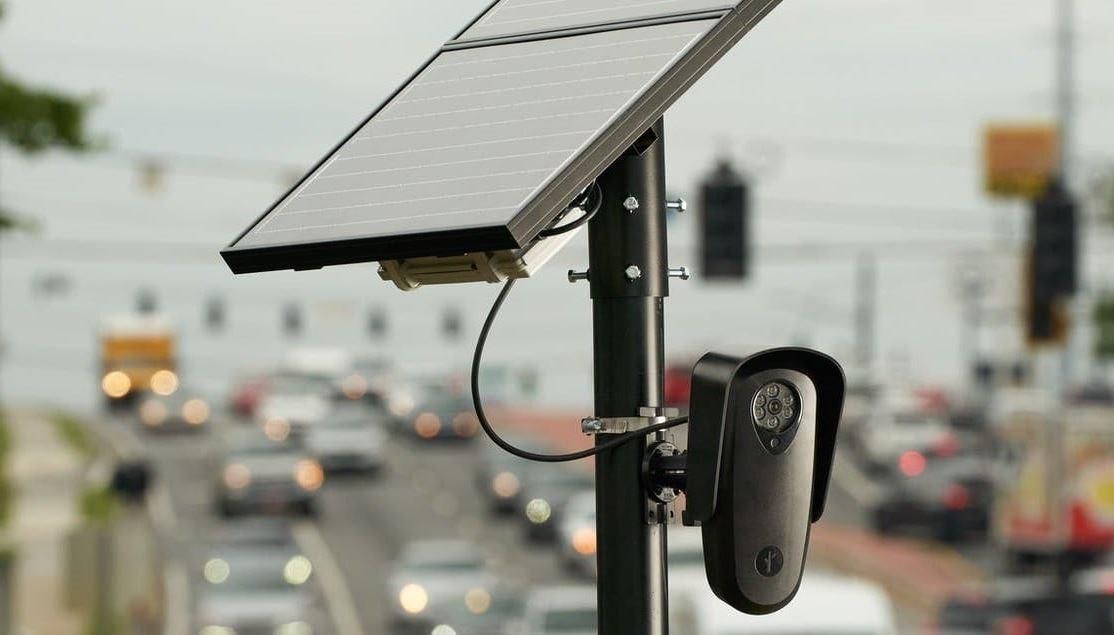NC House members back more license plate reader cameras

More cameras to read license plates and help law enforcement track suspects could be added to North Carolina highways under a bill that moved forward Wednesday at the statehouse.
The added authority has been controversial in recent years, and in 2019 it was narrowly rejected by the North Carolina House of Representatives. This year’s effort moved easily through the House Transportation Committee Wednesday as part of a wide-ranging Department of Transportation bill.
Raleigh Police Chief Estella Patterson and Nash County Sheriff Keith Stone both spoke in favor of the change, saying they need force multipliers, particularly with vacancy rates and violent crimes increasing.
Many cities already use these cameras, and the question now is where to allow them on state highways. Patterson said adding cameras for her department was the "most beneficial decision that I have made as a chief" and that, in the last 28 days, cameras led to 22 arrests.
She said officers located a stolen vehicle with a 7-year-old child in it within an hour thanks to the technology.
"I don't believe that we would have been able to ... get that child back to safety had we not had that [license-plate reader] in the area,” Patterson said.
Patterson said cameras also help the department recover stolen vehicles, which would otherwise be difficult given staffing issues.
Privacy concerns kept this expansion from passing the legislature in recent years, but the proposal seems to have new momentum in this legislation session. A separate surveillance bill, which would let police track cell phone locations in real time without a warrant in some situations, also moved forward Wednesday.
The license plate reader language is in House Bill 198, and it would allow cameras in rights of way along highways controlled by the Department of Transportation, but only for a year, starting in July. Lawmakers would need to re-up the pilot program after that.
The bill also creates a new class 1 misdemeanor for illegally accessing data collected by license plate readers, which use cameras to identify vehicles by their license plates and store this information in a database that can be used to track people.
This is one section of an 18-page bill that also contains changes in Department of Transportation contracting rules and other changes requested by the department. The entire measure moved easily through committee after about 15 minutes discussion, and the voice vote appeared to be unanimous.
Other sections of the bill would:
- Repeal, in part, a prohibition against spending money on bicycle and pedestrian paths that aren't connected to a road project. The Department of Transportation has wanted to change this for years, but lawmakers rejected the move. This year a compromise was struck that would allow state money to be spent on bicycle and pedestrian projects if they improve access for low-income, elderly or disabled people.
- Allow larger processing fees for unpaid toll bills, boosting them by $3 to $9 for each violation. The annual per-person cap also woiuld increase, from $48 to $72. These fees were established in 2011 and haven’t increased since, according to the department.
- Ensure state authority to turn highway shoulders into tolled traffic lanes during peak travel hours, if requested by the local metropolitan planning organizations that work with the DOT on road plans. Department officials said they believe the state Turnpike Authority already has this power and that this is clarifying language that would be added to state law to ensure it.
- Rework laws governing billboard projects along state roadways, which is something of an annual discussion at the statehouse. These rules limit vegetation removal near billboards and are often controversial. The industry and the department have agreed on this proposed language.











